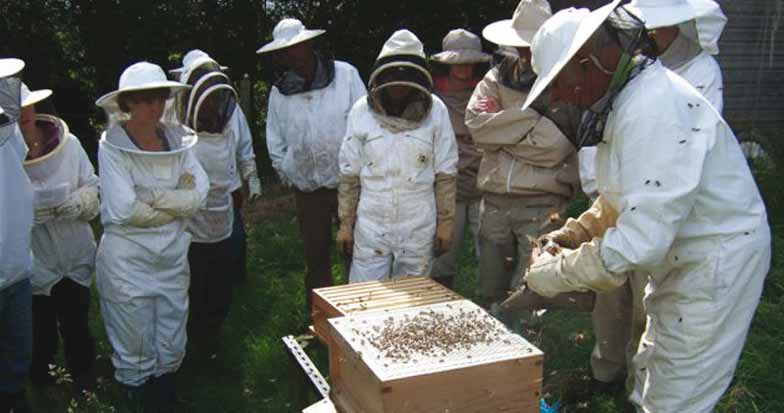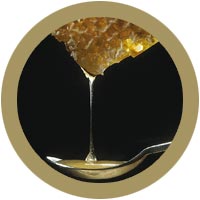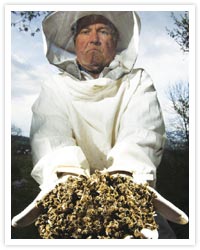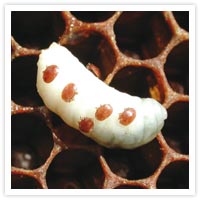


An apiary is a place where bees and beehives are kept. Bees are the major pollinators of flowering plants and are an essential part of agriculture. Without bees agriculture would collapse.
Until recently there had always been feral colonies of Honey bees (Apis Melifera) at Gregynog, nesting in hollows of trees and sometimes in the sheds and barns. Then in the late 1990’s the parasite Varroa was found in Montgomeryshire and by 2005 almost all the feral colonies in the county were wiped out.
A few colonies of feral Honey Bees still exist in Wales in isolated places but it is considered unlikely that bees can survive without the help of man. To help the bee we need to educate the public and train beekeepers.
There are a number of different types of hives in this apiary. Some are favoured by commercial beekeepers and some by the hobbyist beekeeper who may just keep one or two hives. You may see a great deal of activity outside one hive and very little outside another but this does not mean that one hive is better than its neighbour. On another day the quiet hive may burst into activity.
The health of the bees in this apiary are monitored by government bee inspectors on a regular basis, demonstrating how important bees are to our agriculture.
The apiary will provide replacement stock for those local beekeepers that have lost bees during the winter. From July each year when Gregynog’s Rhododendrons have finished flowering, honey and wax will be collected. Both visitors and bees love the spectacular Rhododendrons on the Gregynog Estate. Unfortunately the honey from Rhododendrons is slightly poisonous to Humans so we can only collect honey after the flowering season has finished.
Further information can be found in the Apiary Viewing Shelter and in the visitor reception facilities at Gregynog.
If you would like to know more about bees or how to become a beekeeper then visit our website www.montybees.org.uk
 Liquid gold and very tasty
Liquid gold and very tasty Bees are an essential part of agriculture
Bees are an essential part of agriculture Bee
Bee Varroa parasites on bee larva
Varroa parasites on bee larva